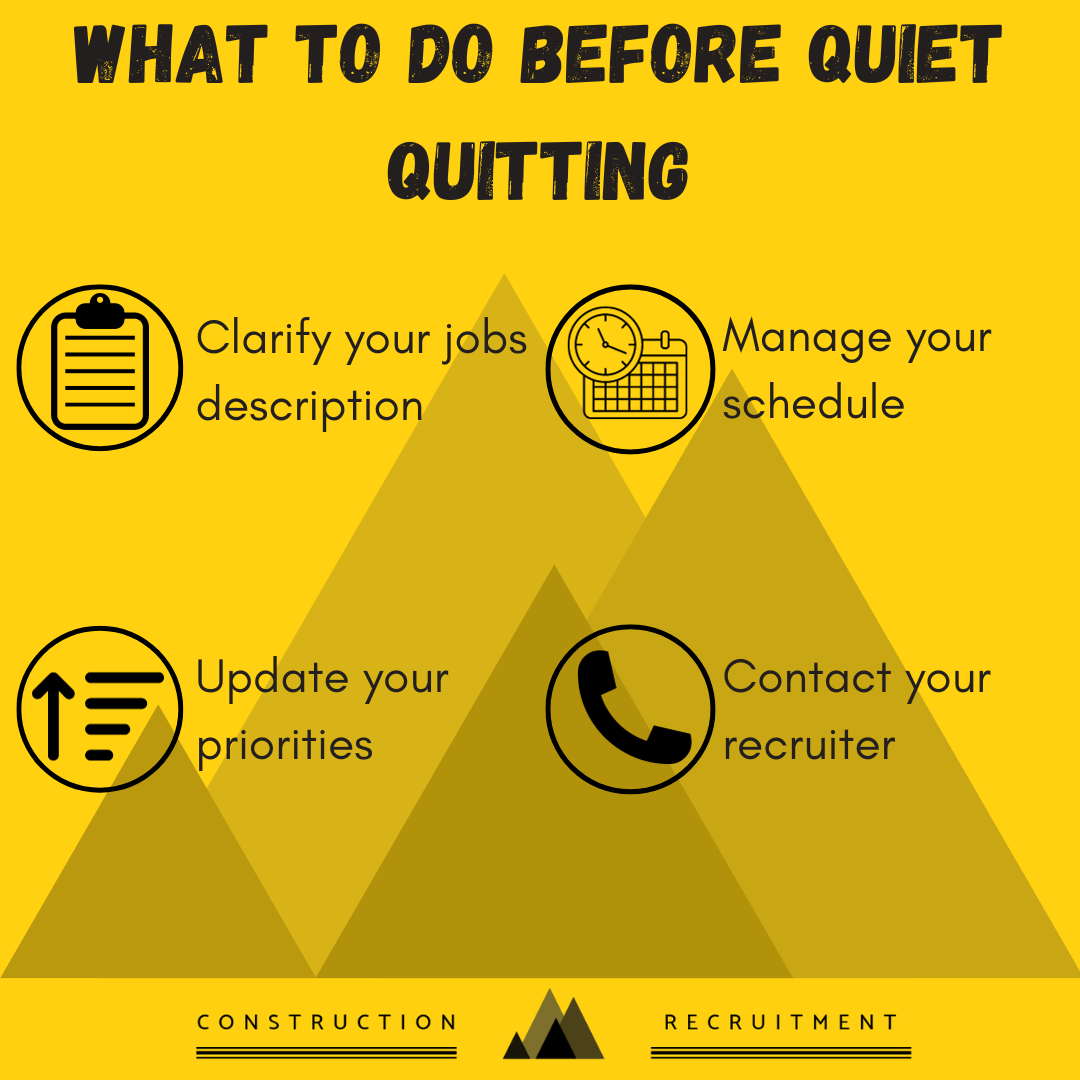
02 Mar What to do Before Quiet Quitting
“Quiet Quitting” was one of the most popular phrases of 2022, so much so that Collins Dictionary named the buzzword one of its top ten words of the year. The expression describes a phenomenon discussed widely on social media when employees carry out the bare minimum tasks required by their job description without opting into surplus projects or extracurricular activities.
The issue of quiet quitting has been debated much in the media and presented as a generational debate: Detracters have railed against the “lazy snowflake generation” enabled by remote and hybrid working, while proponents have argued that quiet quitting shouldn’t even be an issue since employees shouldn’t be expected to perform additional duties outside of their job description anyway.
No matter the social debate, however, there’s no denying that quiet quitting is, personally, an undesirable position to be in your career. So, what can you do if you’re dissatisfied with your job before quiet quitting?
- Clarify your job description
Over time, duties can accumulate as unspoken responsibilities until the only one who really knows all the tasks that you carry out in your role is you. Your line manager may not even be aware that your actual current job description is either unachievable or undervalued. If you would like to reduce this list or if you would like a promotion or pay rise to match your increased responsibilities, invite this discussion by requesting a review of your job description.
- Update your priorities
If you are, in fact, required to take up new duties, it’s important to update your priorities according to the value that your line manager places on each of the tasks you carry out. This way you can decide which responsibilities require your immediate attention and which you can plan to get to when you have the time.
- Manage your schedule
If you are required to take up fixed-term projects outside of your usual job description, make sure to establish a project schedule and share this on your work calendar so that your line manager and any other colleagues can see when you are spending time working on this project and are consequently unavailable to complete any other work.
- Contact your recruiter
Finally, if you have tried each of these steps and there is no change in your situation, get in touch with your recruiter as soon as possible so they can begin searching for opportunities that won’t make you want to quit, quietly or otherwise.
YourConstruction Recruitment specialises in all construction roles as we provide candidates across the country. We offer an efficient, effective and enjoyable staffing experience to job-seekers and employers.
Article source: https://www.forbes.com/sites/ashleystahl/2022/11/02/whats-really-happening-with-quiet-quitting/?sh=324e97a42ab1
Contact Information:



